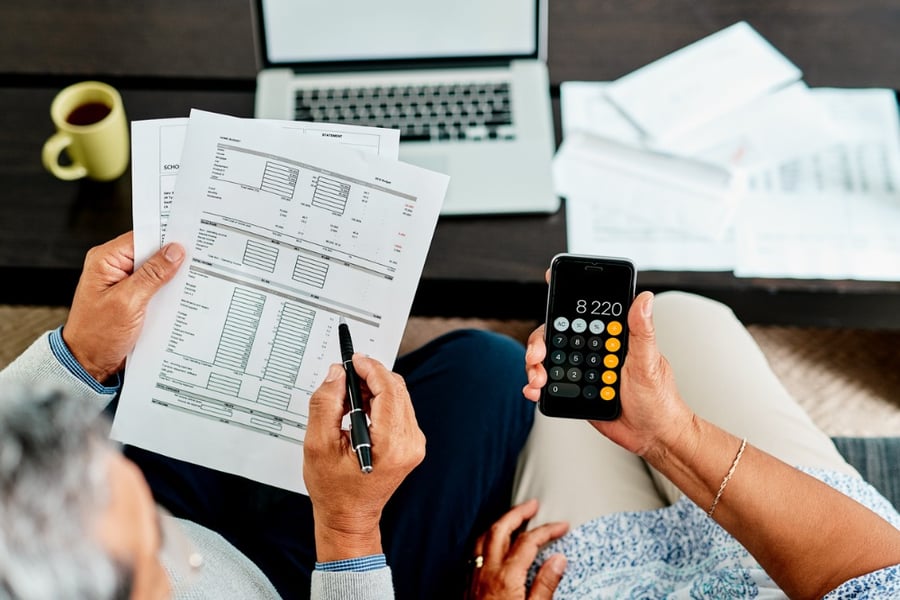A Clever survey found that issues other than COVID-19 may be impacting homeowners' views of their financial health

A report released last week by real estate brokerage Clever found that despite the U.S. economy opening up and employment data becoming more encouraging, recent homeowners in America are still feeling acute anxiety over the future of their investments. It also found that an alarming number of Americans may be in need of education around savings, responsible borrowing and forbearance.
Whereas much of the most alarming COVID-19 survey data released over the past two months was collected in March and April, rendering the results out-of-date and colored by the extremity of the early COVID-19 situation, Clever’s research, based on a May 31-June 2 survey of 1,000 people who purchased a home between January and May of 2020, provides some of the most up-to-date insight available into the minds of American homebuyers.
Despite the strength of the housing market prior to COVID-19 and its ability to so far weather the crisis without home values tanking, those minds remain clouded by fear. According to Clever, 2020 homebuyers are “more than twice as likely to report feelings of anxiety and stress than home buyers who bought in the last 5 years, and they're less likely to report feelings of comfort, security, happiness, and pride.”
COVID-19 would seem to be the most obvious culprit in bringing homeowners down, but Clever’s data found that buyers who purchased in January and February were actually more worried about going underwater on their mortgages than those who purchased during the pandemic. 63.7 percent of pre-pandemic buyers are worried about the future value of their homes versus 53.17 percent of buyers who purchased during the pandemic.
According to Franceska Ortegren, data scientist at Clever and author of the report, that discrepancy could be due to unfulfilled expectations – January buyers would have expected normal levels of appreciation, May buyers not so much – or to the generally uncomfortable financial situation most American home buyers find themselves in no matter when they decide to buy.
“I do think that it does signify some amount of living outside your means a little bit,” Ortegren says, adding that previous studies have shown that many buyers often don’t come to a purchase with robust savings or an ability to put down more than a modest down payment.
“There are a lot of indicators suggesting that people aren’t necessarily ready for homeownership when they buy,” she says.
Interestingly, Ortegren says recent buyers are leveraging larger down payments. 2020 buyers were almost three times more likely to put down 40-49 percent than people who purchased from 2015-2019, and more than twice as likely to put 30-39 percent down. But Ortegren doesn’t interpret it as a signal of more responsible borrowing.
“It spoke to this idea that we assumed was happening, which was credit standards are being tightened,” she says.
One of the most shocking data points Ortegren found was that almost 18 percent of respondents, despite having purchased within the last six months, are already behind in their mortgage payments.
“That was really surprising,” she says, “considering that the majority of new mortgages are government-backed, which means they fall under the CARES Act requirements and the lender has to allow them to go into forbearance without penalty.”
Ortegren says these borrowers may have somehow still been unaware that forbearance was an option – at the beginning of June – but the possibility exists that some of them were already behind on their mortgages before COVID-19 hit the U.S.
While the confusion on display in the survey results can be argued, the worries respondents have around their finances cannot. Just under 80 percent of homeowners reported being either somewhat or very concerned about their ability to pay their mortgages in the coming months; 55 percent are paying lower amounts after coming to an augmented repayment agreement with their lenders. Almost 40 percent of homeowners have taken on more than $2,000 in non-mortgage debt since purchasing a home this year.
It’s not surprising that these struggling borrowers would feel more negatively about owning their homes. 2020 purchasers ranked behind their 2015-2019 counterparts in saying home ownership makes them feel “proud”, “comfortable”, “happy” or “secure”, and were way ahead of them in saying it makes them feel “stressed” or “anxious”.
A lack of income, while being the overriding narrative produced by Clever’s report, isn’t the only reason these homeowners are worried. A lack of financial literacy is undoubtedly playing a part in their stress levels. For almost four months, homeowners have been wandering through a hailstorm of headlines, being pelted with negative prediction after negative prediction, and yet it seems many are not reaching out to mortgage professionals for the answers they need.
If almost 20 percent of recent homeowners are still unaware of what mortgage forbearance is, what else don’t they know? It’s up to America’s loan officers and servicers to find out.



